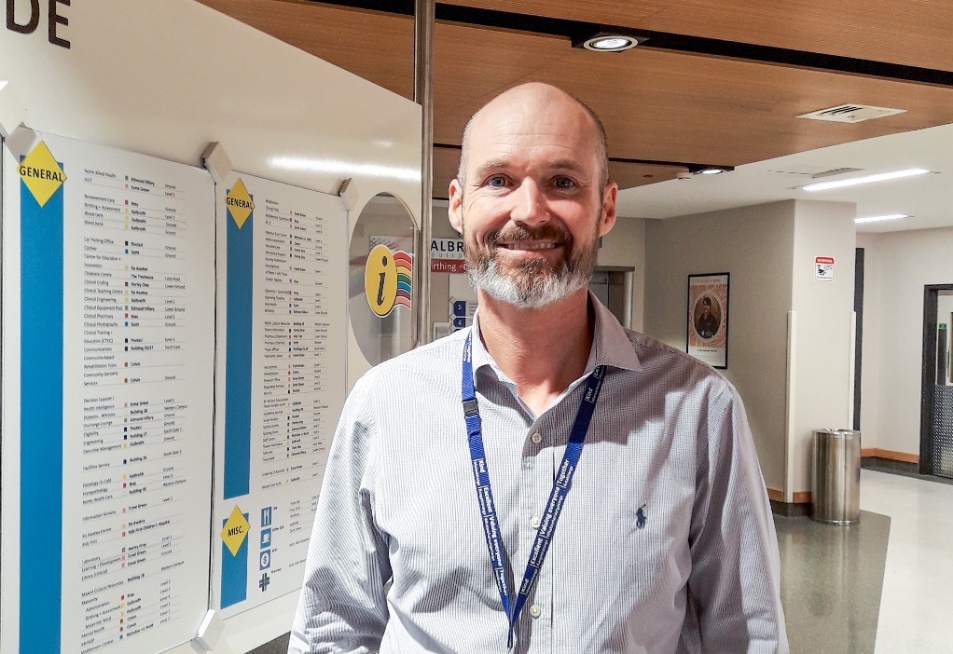- Home
- About Us Latest News
- Spotlight on Plastics Surgical Research at Middlemore Hospital, Auckland, New Zealand - Led by Dr Jon Mathy
Spotlight on Plastics Surgical Research at Middlemore Hospital, Auckland, New Zealand - Led by Dr Jon Mathy
Dec 03, 2020
Spotlight on Plastics Surgical Research at Middlemore Hospital, Auckland, New Zealand - Led by Dr Jon Mathy

Dr Jon Mathy is a researcher and plastic surgeon, who has been with Middlemore Hospital since 2010.
He has a huge desire to improve patient care, particularly surrounding wound healing and management of surgical site infections. Dr Mathy and his co-collaborators have recently been awarded a research activation grant from the New Zealand Health Research Council (HRC) as an initial investigation into the use of anti-staphylococcal bundles in reducing post-IBBR SSIs (implant-based breast reconstruction surgical site infections).
How did you get into research?
I first got into research by doing some summer research programs as a volunteer activity in college. Mostly work based on purifying and manipulating DNA, which exposed me to a lot of really good role models. That had a lot to do with getting me interested and keeping me involved in research. It then became something I carried on through university, medical school and surgical training at Stanford and Harvard, and now here and with the University of Auckland. I’m still in the process of identifying good role models here and I’m trying to act as a good role model for others. I think it’s important to have somebody to look up to.
Can you tell us about the most stand-out experience you had in doing research?
I’ll tell you about something that’s a little bit atypical. One of the most stand out experiences in research for me, was probably spending a week in-lab when I was at university. I bought a cot and I slept in the lab for the week, trying to adapt a new technology towards some cell-culture studies looking at the biology of cranial synostosis in animal models, and I never got it to work. I guess it’s a standout experience for me because I failed. I think it’s an important lesson, that failure is a significant part of research and it’s something that marks research apart from a lot of other professions, where failure is accepted. It also taught he how to ask better questions in research!
What are your core research principles (i.e. what drives you into doing research?)
Challenging norms is a core feature for me. We were told in medical school that 50% of what we were taught would have been proven wrong by the time you retire. I remember being told that as a student and it’s really stuck with me because I’ve always thought I wanted to be one of the people who would determine what was wrong and help develop new knowledge.
Another one is the patients, putting patients first. There is a lot of good data and experience to show that just by being involved in research and clinical trials, the patients do better. They get more attention, even when just following standards of care, and its particularly useful for us here in NZ and at Middlemore because it allows our patients to have access to technologies and therapies that they wouldn’t otherwise get.
Building new knowledge base and innovation is another one. Before I was a doctor I was a sculptor, I sculpted in steel and I have a Bachelor’s in Biochemistry so that involved a lot of building, both in the physical world and I guess with molecules. I carried that into medicine with a Master’s degree in Device Design. That’s another area where I think clinical research can really contribute to translational research.
For me it’s also important to mention inspiring others. Touching on what we said before, it’s good to be able to give back to the next generation, and to provide role models that inspire others to participate in and contribute to research.
The future of Plastics research; where do you think the future lies in Plastics research?
For me, in general the future holds a lot of scope and opportunity for research in plastic surgery. Plastic surgeons do a lot of innovative work clinically, but we need more translational and basic science research. My interests include surgical site infections and wound healing, so all my projects are based around that. I’m currently looking at SSIs in skin surgery and now also in implant based breast reconstruction, which are two areas where I have funding from HRC. I think they are interesting because it’s another example of how traditionally held ideas are being challenged and how there’s scope to rewrite the normal practice in a way to improve patient outcomes.
Any other thoughts you’d like to portray?
I encourage other people to do research, it’s pretty interesting. Mother nature is pretty reluctant to give up her secrets but research is a really fun and interesting way to try and advance the state of the art. I think everybody benefits from it.
